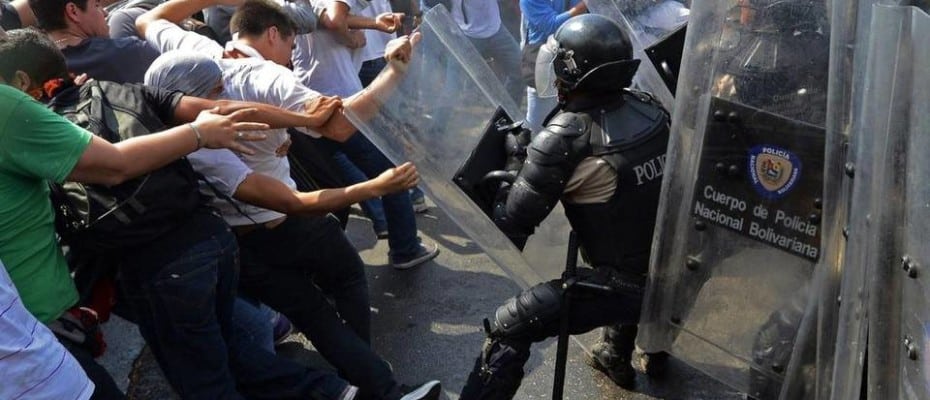
The country of Venezuela is on the edge of collapse. This is partly the result of a weak oil price that has shrunk an important revenue lifeline for the Venezuelan government.
The government has responded by printing massive amounts of new Venezuelan currency to keep the government running. This, in turn, has resulted in hyper-inflation far in excess of 500% annually.
The authoritarian government has attempted to “fight” the inflation, not by stopping the money printing and shrinking the government payroll, but by imposing price controls, which any first year economics student can tell you leads to shortages–and shortages is what the country has across the economy from food to toilet paper.
A default by the state oil company Petroleos de Venezuela on its debt obligations may be next. Such a default would add additional complications for the Venezuelan government that could result in greater social unrest.
Up until now, the government has seen to it that the debts of Petroleos de Venezuela are paid on time, to keep its international credit standing strong. But here’s the kicker.
The United Sates government is making it difficult for Petroleos de Venezuela to make its future payments.
The U.S. government is placing pressure on major banks to keep their distance from “illicit” Venezuelan financial flows, specifically identifying Petroleos de Venezuela as a problem area.
This has resulted in Citibank announcing that it will stop processing debt payments to Petroleos de Venezuela’s bondholders. The bank has cited “a periodic risk-management review.”
The bank told bondholders that it would end its role as Petroleos de Venezuela’s principal pay agent and suspend its processing of at least seven debt bonds, including $5 billion in debt payments due in October and November of this year.
If Petroleos de Venezuela can not find another major bank processor, the state oil firm will not be able to make its payments and all hell could break lose.
A default would result in the cutoff of much needed operating loans for further oil production thus making the economic situation even worse than it is now.
How the military and other government agencies react to a default will be significant. They will recognize that a default means even further declining oil revenue for the government over time as production declines and that the only available option would be more money printing which would mean even more intense hyper-inflation.
It is unclear whether Venezuelan President Nicolas Maduro would be able to survive under such a scenario. An overthrow may very well occur at such time resulting in someone more favorable to the United States gaining power, which could ultimately lead to major global bank processing resuming.
The key, for now, is to see if any global bank will step up in the face of U.S. warnings and be willing to process the payment business of Petroleos de Venezuela that Citibank has walked away from.
If the vacuum is not filled, it is going to signal even greater economic problems for the people of Venezuela and more of a chance of Maduro being overthrown and someone more favorable to the United States gaining power.
Robert Wenzel is Editor & Publisher of EconomicPolicyJournal.com and Target Liberty.
Republished with permission from Economic Policy Journal.

